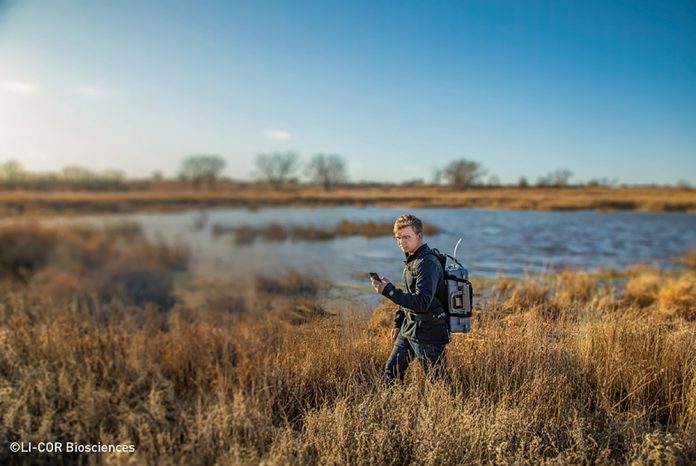Interview with SUEZ Air & Climate specialist, Craig Lewis
You’ve introduced SUEZ AirAdvanced®-SCAN360 in the UK. Why?
It’s the Net Zero 2030 target. The UK has set some pretty high targets to combat climate change and made it a legal obligation to reach net zero by 2050. That’s a big deal! The British government recognises the urgency to decarbonise critical infrastructure, especially the water industry, which represents between 2-5% of the UK’s overall greenhouse gases (GHG). To fulfil their promise of a sustainable future, the water industry has set an ambitious goal to achieve net zero process emissions by 2030. And that’s where we come in.
As a global water utility and sustainable-driven company, SUEZ is dedicated to bringing this effective technology where it’s needed the most. AirAdvanced®-SCAN360 detects and measures GHG process emissions, helping water companies stay compliant and reaching their net zero targets more easily.
What sets SCAN360 apart from other air quality services?
AirAdvanced®-SCAN360 is a complete innovative air quality service. It’s designed to help providers and operators to examine their GHG footprint on an individual site basis, as well as review and determine site efficiency.
The solution goes beyond just providing solid data for annual reporting of GHG emissions. It actually gives operators a reliable understanding for each site’s emissions. This means they can focus on specific key performance indicators and work towards achieving their net zero carbon goals.
AirAdvanced®-SCAN360 establishes a firm baseline by studying carbon dioxide (CO2), methane (CH4), and nitrous oxide (N2O) concentrations through diagnosis mapping. This data is then fed into an inverse dispersion model, providing a detailed breakdown of the site’s GHG footprint. It identifies emission sources and calculates emission fluxes in kilograms per hour. Measurement campaigns are versatile and designed for accurate capture of emission fluxes.
Why is there focus on wastewater treatment companies?
Conventional wastewater treatment plants are actually big contributors to carbon emissions. They generate a significant carbon footprint, accounting for approximately two thirds of GHG emissions. During biological treatment processes, biogas production, and other chemical changes, GHGs like CO2, CH4 and N2O are released into the atmosphere. It all adds up and has a major impact on our environment.
The water industry is quite energy and carbon intensive. According to the International Energy Agency, a Paris-based autonomous intergovernmental organisation, approximately 4% of global electricity is used in water pumping and treatment. And guess what? The demand for electricity in the water sector is projected to rise by a whopping 80% in the next 25 years.
To hit the 2030 net zero targets, water companies must act urgently to mitigate emissions and monitoring is an integral step in this process.
What are the short-term and long-term benefits of using SCAN360?
Short-term benefits include the fast localisation and precise quantification of fugitive emissions, leading to enhanced on-site safety conditions. Through detailed analysis, mitigation solutions are swiftly suggested and, where agreed, promptly implemented. The datasets provide valuable insights into the site’s operations, allowing the operations team to review flow and load variables over a defined timeframe. Additionally, this data aids in leak detection and supports stability and maintenance requirements.
AirAdvanced®-SCAN360 offers a valuable “snapshot” of the emissions data during delivery. This snapshot serves as a powerful benchmark for measuring a site’s process emissions. It enables prioritisation of improvements and in-depth examination of the main causes of the emissions. This helps companies optimise investment strategies, increase long-term revenues, accelerate their “green” transition, plan for further GHG reductions, and improve their CO2 footprint.
How do you measure successful usage?
When used alongside its whole suite of solutions, AirAdvanced®-SCAN360 delivers highly favourable results. Its precise analysers, based on high-frequency spectroscopy, detect air pollutants at levels as low as parts per billion. With its advanced features, our team can easily identify and measure GHG concentration, and create detailed 3D atmospheric dispersion models.
Besides the water industry, what other sectors can use SCAN360?
AirAdvanced®-SCAN360 is a real game-changer for a variety of industries that generate substantial GHG emissions. We are talking about sectors like construction, fossil fuels, electricity, transportation, and waste management, including those engaged in biological treatment, biogas production, and other chemical processes.
Craig Lewis is an Air & Climate specialist for SUEZ with over 10 years of expertise in all aspects of air quality including regulatory monitoring, engineering performance, consultancy, and local air quality management.



